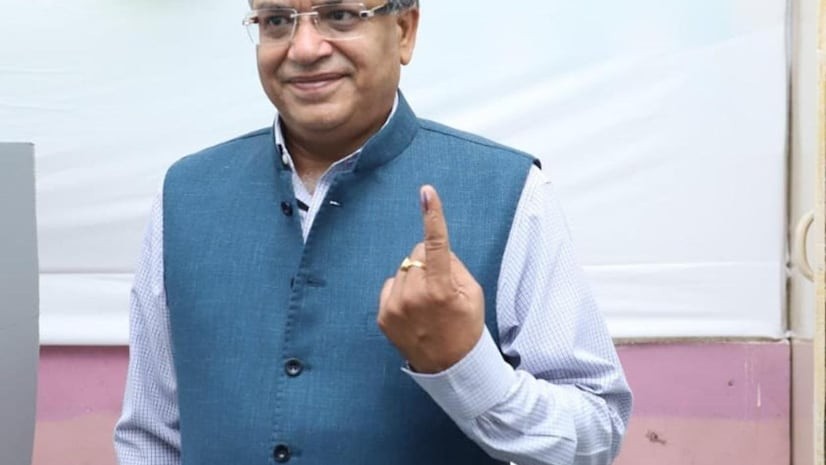Chief Election Commissioner Appointment

- 22 Feb 2025
In News:
Gyanesh Kumar has been appointed as the new Chief Election Commissioner (CEC) of India, becoming the first to be selected under the new legislative framework — The Chief Election Commissioner and Other Election Commissioners Act, 2023. He succeeds Rajiv Kumar. Simultaneously, Dr. Vivek Joshi, former Haryana Chief Secretary, was appointed as an Election Commissioner.
Constitutional Basis
- Article 324 of the Indian Constitution provides for the Election Commission of India (ECI), consisting of the CEC and such other Election Commissioners as the President may determine.
- It vests the superintendence, direction, and control of elections in the ECI for conducting elections to Parliament, State Legislatures, and for the offices of the President and Vice President.
Earlier Appointment Process
- Governed by convention and the Election Commission (Conditions of Service of Election Commissioners and Transaction of Business) Act, 1991.
- The CEC was appointed by the President on the advice of the Prime Minister, with no formal selection mechanism defined in law.
New Appointment Process (2023 Act)
The Chief Election Commissioner and Other Election Commissioners Act, 2023 introduced a formal selection process:
- Selection Committee:
- Prime Minister (Chairperson)
- A Union Cabinet Minister (nominated by the PM)
- Leader of Opposition (or largest opposition party leader) in the Lok Sabha
- Search Committee:
- Headed by the Cabinet Secretary, this body shortlists eligible candidates.
- Eligibility Criteria:
- Must be a person of integrity
- Must have experience in election management
- Must be or have been a Secretary (or equivalent) to the Government of India
Service Conditions (As per 2023 Act)
- Salary & Status: Equivalent to that of a Cabinet Secretary (earlier: Supreme Court judge).
- Tenure: 6 years or till the age of 65, whichever is earlier.
- Reappointment: Not permitted.
Removal Process
- CEC: Can only be removed in the same manner and on the same grounds as a Supreme Court judge (i.e., by Parliament through impeachment).
- Election Commissioners: Can only be removed on the recommendation of the CEC.
Functions & Powers of CEC
- Conducts elections to the Lok Sabha, Rajya Sabha, State Assemblies, and offices of the President & Vice President.
- Regulates political parties and election funding.
- Enforces the Model Code of Conduct (MCC).
- Maintains and updates electoral rolls and supervises the voter registration process.
- Has the authority to disqualify candidates and cancel elections in case of serious irregularities.
- Advises the President and Governors on election-related matters.
Judicial Context & Controversy
- In the Anoop Baranwal vs Union of India case, the Supreme Court ruled that the independence of the ECI must be preserved and directed that a law be enacted to define the appointment process.
- Until such legislation was passed, the Court had prescribed a selection committee comprising:
- The Prime Minister
- The Leader of Opposition in the Lok Sabha
- The Chief Justice of India (CJI)
- However, the 2023 Act excluded the CJI, replacing the judiciary with another executive appointee, raising concerns about executive dominance.
- Multiple petitions challenging the constitutionality of the Act are pending before the Supreme Court.
